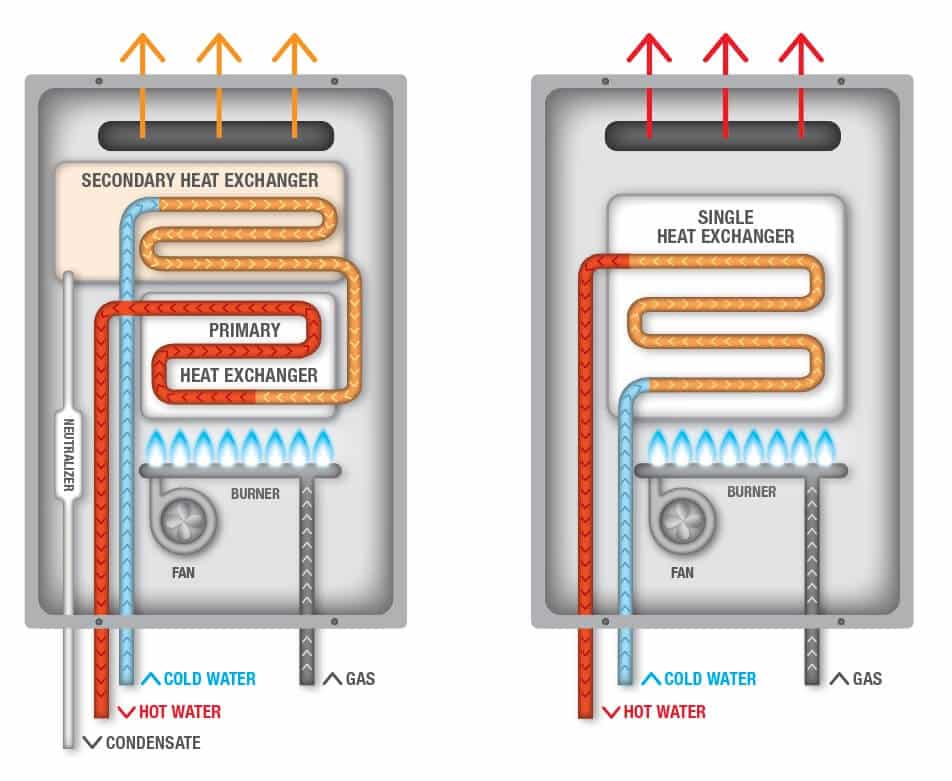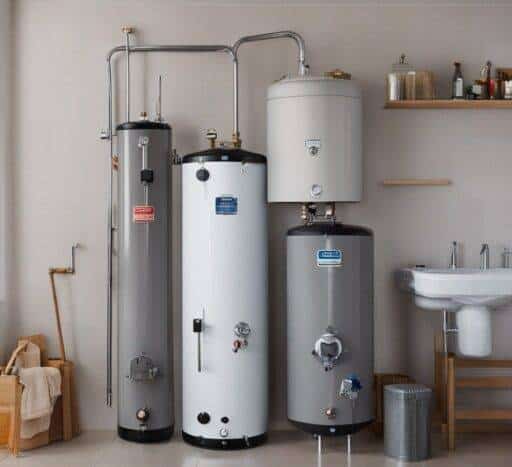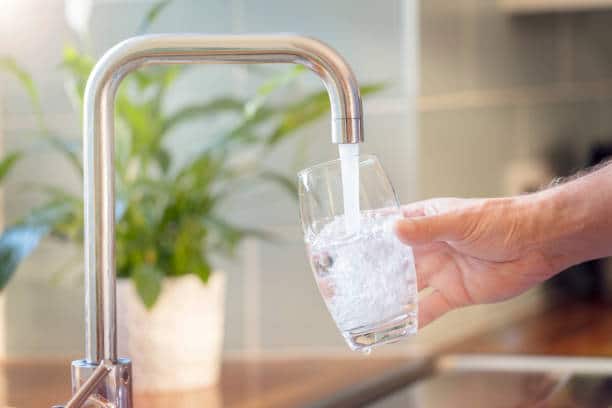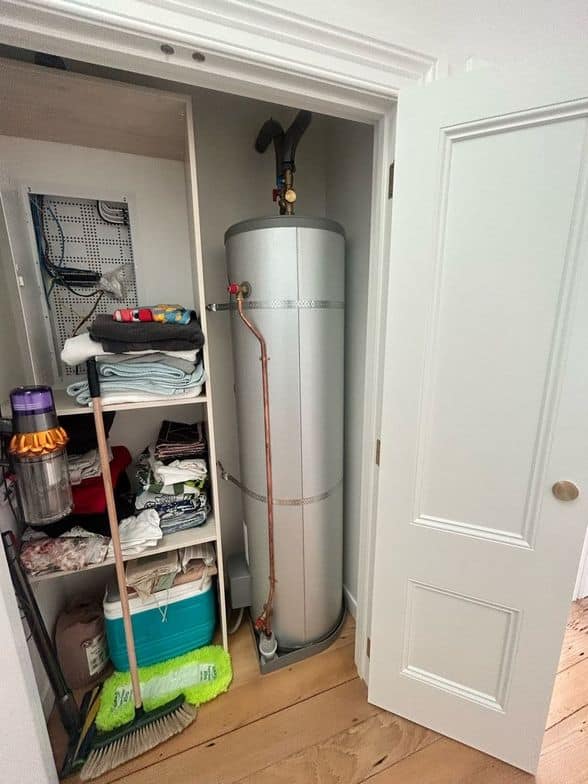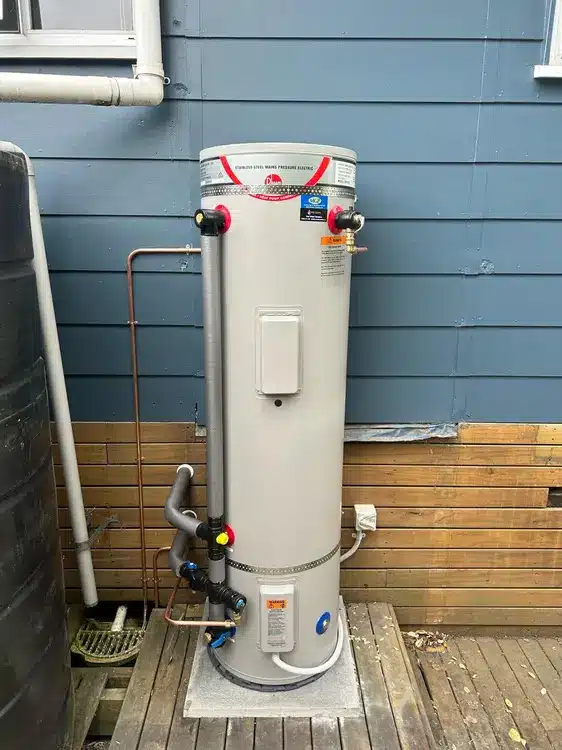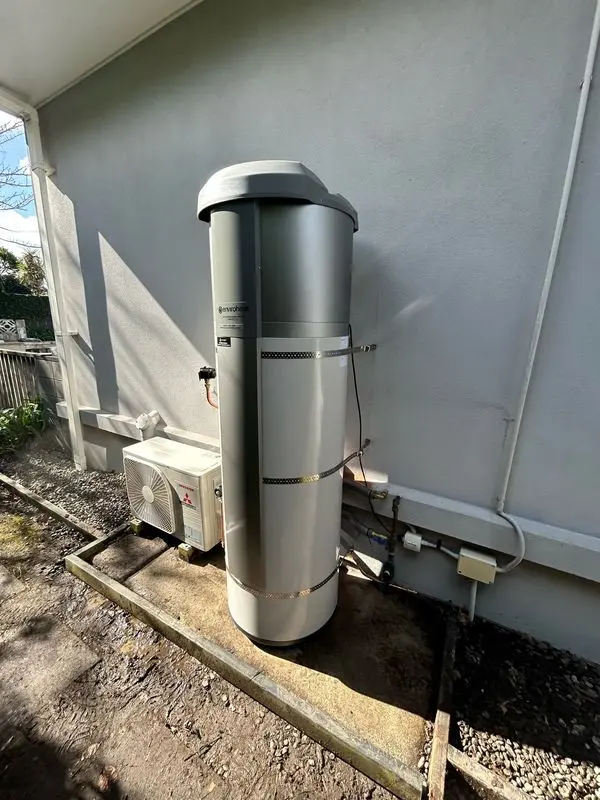Sensible Heat
In standard tank or continuous flow water heaters without condensing technology, around 89% of the heat generated from gas combustion is “sensible” heat that directly warms the water. The remaining 11% is “latent” heat contained in the resulting water vapor that escapes through the flue. This limits non-condensing heaters to approx. 81 – 84% efficiency.
Condensing water heaters capture the latent heat that would normally be discharged and reuse this extra energy to warm your water instead. The water vapor reaches its dew point within the sealed system, condensing back into liquid form and releasing heat in the process.
Proper Venting
For a condensing water heater system to work effectively, proper venting is crucial. Condensing systems produce acidic condensate as a byproduct that needs to be drained away safely. Venting must be made from corrosion-resistant materials specifically approved for high-efficiency condensing heaters.
Failure to install proper materials can lead to deterioration and compromise the vent system over time. Vent configurations also require careful planning to allow for continuous downward pitch and condensate drainage.
Maintenance Requirements
While the sealed system and efficiency of a condensing water heater reduces some maintenance needs compared to conventional units, some special care is still required. It’s critical that the condensate drain line does not become blocked, which could cause dangerous exhaust gases to accumulate within the system. Periodically inspecting and flushing the line will ensure continuous drainage.
The heat exchanger should also be checked and cleaned annually to remove scale or sediment buildup which could reduce efficiency over time if left unchecked.
Environmental Benefits
Because condensing systems utilise leftover latent heat, they burn less gas to heat water to the desired temperature. This directly translates into reduced carbon emissions and environmental impact from water heating, which otherwise accounts for approx. 14% of home energy use.
Condensing water heating is a key technology to reducing the carbon footprint of residential buildings. With exceptionally high efficiency ratings, condensing systems pair well with renewable energy sources, further improving sustainability. Their advanced design also reduces nitrogen oxide air pollution that would otherwise be emitted through flue gasses.
Rebates and Incentives
Many energy providers and local governments offer rebates and incentives to homeowners who install a condensing hot water system to replace an older, less efficient one. This is because the technology significantly reduces fuel usage, which allows energy companies to preserve resources. The rebates help offset the higher upfront costs of buying a condensing water heater compared to a conventional one. Additional tax incentives may also be available as part of emissions-reduction or sustainability programs. Checking for current rebates and tax breaks is a great way to save money while also upgrading to an eco-friendly, high efficiency condensing hot water system.
The Needs of a Condensing System
To work properly, condensing systems need to keep heat exchanger and return water temperatures cool enough for continuous condensing operation. This is why continuous flow condensing units are one of the best applications of the technology – with consistently cool incoming water, they almost always run in peak condensing mode.
Hot Water Solutions
At Hot Water Solutions, we have extensive knowledge of the latest advancements in condensing hot water technology. We pride ourselves on customer service and doing the right thing. Call us at 0800497658 or contact us through our website if you’d like help or have any questions.
At Hot Water Solutions, all we do is hot water, and we’re here for you!

